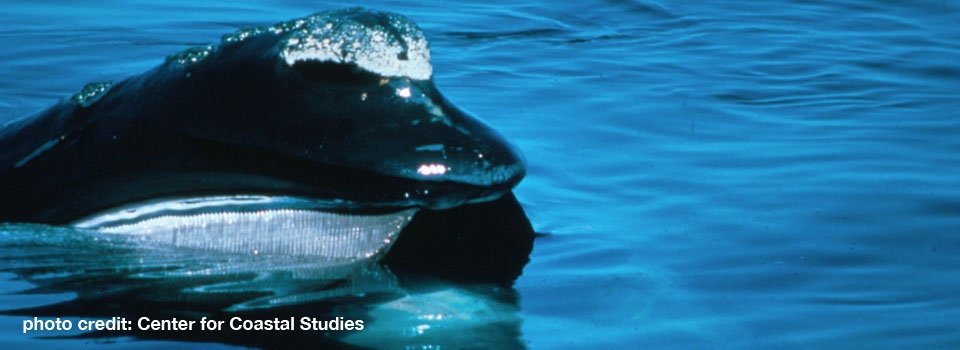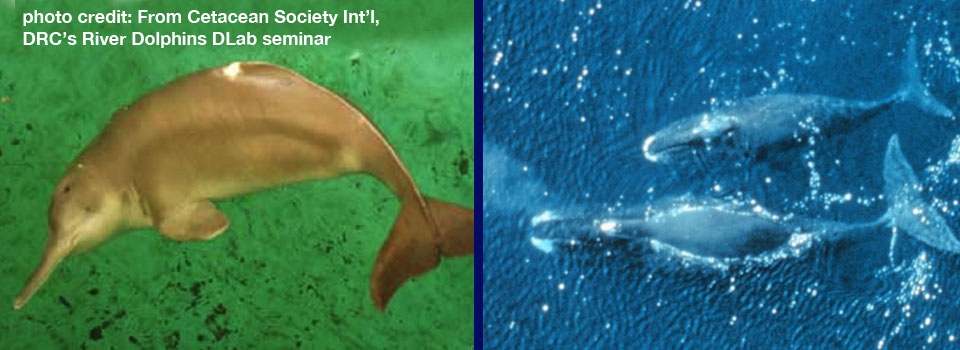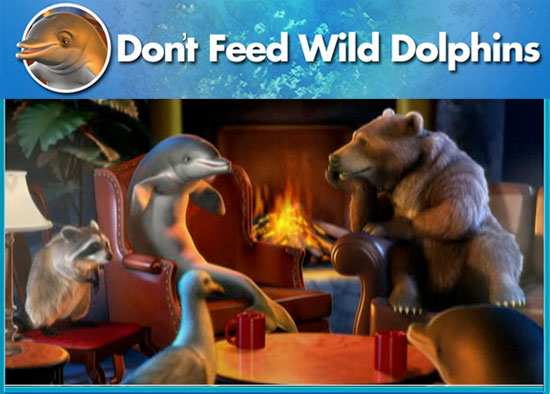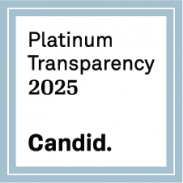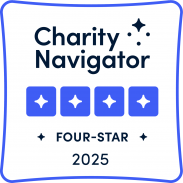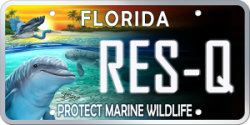- RESEARCH
- LEARN
- Child Education »
- Teen Education »
- Adult Education »
- Resources »
- Tips »
- Kids Zone »
- SHOP

- Providing Sanctuary and a Forever Home since 1984.
- A not-for-profit 501(c)3 marine mammal education and research facility for more than 35 years.
- Providing Sanctuary and a Forever Home since 1984.
A not-for-profit 501(c)3 marine mammal education and research facility for more than 35 years.
The 3 R's & an S
The 3 R's & an S
Reduce...
- Avoid the purchase and use of polystyrene and other plastic products. These products are deadly to marine life, waste enormous amounts of precious space in landfills, and release poisons into the environment when incinerated.
Polystyrene comes in two versions: clear, as in salad take-out trays; and foam (such as in the brand "Styrofoam"), commonly used for disposable cups and plates, and food packaging such as produce or meat trays. The manufacture of this type of polymer (plastic) produces the release of the chlorofluorocarbons (CFC's) which lead to the chemical degradation of the ozone layer. Only a tiny amount of polystyrene recycling is currently taking place. Encourage your school or company to curtail its use.
- Avoid buying items with plastic packaging. Cut up 6-pack rings before throwing them away. Support companies who use environmentally safe methods of packaging. Look for products with less packaging.
- Ask your grocery store and restaurant carry-out not to package food in polystyrene or plastic, and use a canvas or string bag for shopping.
- Buy unpackaged food and buy in bulk. Shop at farmers' markets or co-ops.
- Make sure that schools, clubs and businesses in your area don't release balloons. The mass release of balloons (such as at football games) allows large quantities of indigestible plastic to end up in the water or on the ground. For help in opposing balloon releases, contact the Balloon Alert Project, 12 Pine Fork Drive, Tom's River, NJ 08755.
Reuse...
- Use a portable, refillable plastic coffee or soda mug instead of disposable styrofoam or plastic cups. Take good care of it, and it may last for hundreds of years! Better yet, use a ceramic mug.
- Wash and reuse plastic bags and containers.
- Use refillable containers. For example, have one small container of detergent for convenience and buy the large economy size to keep it refilled.
Buy plastic toys or other items at yard sales or consignment shops (clean them with borax and a brush).
Recycle …
You can conserve natural resources, ease our waste disposal problems, and prevent trash from choking our marine life by recycling aluminum, glass, and paper.
Mystified by the little numbers on the bottoms of plastic containers? You're not alone. The plastics industry devised this coding system in 1988, supposedly to facilitate sorting the different types of plastic as a first step towards recycling. However, if you see a number from 3 to 7 on plastic, the chances are slim that you can recycle it.
#1 Polyethylene terephthalate (PET) has the best recycling rate: about 27% of it is recycled and used for soda bottles and synthetic textiles.
#2 High-density polyethylene (HDPE) is the second most commonly recycled plastic. It is used for detergent bottles, recycling bins, irrigation pipes and the plastic cups that hold the bottom of PET bottles.
There is only a tiny market for any other type of plastic, and they are rarely collected: #3 Polyvinyl chloride (PVC); #4 Low-density polyethylene (LDPE); #5 Polypropylene (PP); #6 Polystyrene (PS); #7 Everything else, especially mixtures of the other six resins.
- Find out what is recylable in your area. Recycling guides for your county are different from those in another state or county. You need to know, for instance, what you can and can't put in your curbside bin (the wrong items are contaminants and can ruin a whole batch), or what can be picked up for free by your local recycling department. Call your city or county office and investigate.
- Buy recycled products. Support manufacturers who use them. Recycling only works when there is a market for recycled materials.
- Use recyclable foil and glass containers, or degradable cellophane bags instead of plastic bags and wrap.
Stay involved ...
- Participate in coastal cleanups. Contact the Center for Marine Conservation, 1725 DeSales Street NW, Washington, DC 20036, (202)429-5609, for more information.
- Volunteer at a stranding center or wildlife rehabilitation center. Many environmental organizations rely on volunteer support.
- Become better informed by reading, taking classes, and supporting environmental groups.
- Share your environmental concerns with your friends. Even everyday conversations help increase knowledge, awareness and commitment.

Toxins & Ocean Dumping
Toxins & Ocean Dumping
What products do you use around the house? Many household products contain toxic ingredients that find their way into the water and air.
- Consider the environmental impact along with price, quality, convenience, and brand name when you shop.
- Look for vegetable-based soaps and cleaners made with natural ingredients that biodegrade easily and are much less dangerous to the environment (and your family) than petroleum-based products.
- Clean with simple, non-toxic products you may already have on hand, or can find in the supermarket (such as lemons, vinegar, baking soda, castile soap, fels naptha, borax).
- It's fun to make your own non-toxic cleaners from simple ingredients! There are plenty of non-toxic cleaning methods that are just as effective as toxic ones, far less expensive, and nonpolluting. And refilling containers helps with the problem of excess packaging. Look for books on the subject.
- Look for acceptable commercial brands of non-toxic cleaners. There are an increasing number of these, due to consumer demand.
- Use natural cleaning implements such as cellulose sponges, latex work gloves, and 100% cotton rags (you don't have to throw away that old favorite t-shirt!). These feel better to work with, are reusable, and will biodegrade safely.
- Use latex paint instead of oil-based. Not only is oil-based paint toxic, but by-products of its manufacture are nasty pollutants. Pouring old paint on the ground risks groundwater pollution.
- Find out how hazardous waste is disposed of in your area. Let your local and state representatives know where you stand on hazardous waste disposal.
- Learn about organic lawn care. Learn how to have a chemical-free garden (start by growing disease-resistant vegetable varieties, and trees and shrubs that attract insect-eating birds).
- Make a habit of kitchen/garden composting, which saves landfill space and provides you with inexpensive organic fertilizer.
Conserve water...
Unacceptable amounts of untreated waste water are being released into our harbors, lakes and rivers by overloaded wastewater treatment plants. You can help by conserving water at home.
- Don't let the faucet run when you brush your teeth, shave or wash dishes.
- Install a displacement device in your toilet tank to reduce the amount of water used every time you flush. A plastic liter bottle filled with water can be used for this purpose.
- Install aerators on your faucets and trickle-switches on your shower heads to conserve water. They are available at your local hardware store.
- Setting the water for as light a flow as necessary to get the job done can save a tremendous amount of water over time.
Conserve paper...
Recycling paper saves not only trees, but also the water and energy used in processing. Recycling paper also reduces the amount of trash we dump in landfills.
- Cut down on waste by using canvas or string bags for shopping instead of plastic or paper.
- Purchase recycled paper products. Many paper mills are still waiting to see if the demand for recycled paper remains steady before buying the special equipment needed to produce it. As the supply becomes less limited, the price will drop.
-
Don't accept junk mail. The average American is on over 50 mailing lists. To have your name removed from the major mailing list networks, send a written request to:
The Direct Marketing Association
New York Office:
1120 Avenue of the Americas
New York , NY 10036-7277
212 657 7277Washington DC Office:
11615 L St. NW
Suite 1100
Washington , DC 20036
202 955 5030
In the meantime, write "return to sender" on your junkmail and put it back in the box.
Tips...
- Don't expect to change all your habits overnight. Just start doing something. Environmental problems are complex, but "nobody made a greater mistake than he who did nothing because he could only do a little.” (Edmund Burke) It may seem like a little to you, but multiply your efforts by millions of people, and the changes can be stupendous.
- Keep your drinking mug and reusable shopping bags in your vehicle so they're handy.
- Think of yourself as an integral part of the larger biotic community on earth. What affects us, affects the dolphins (and the shellfish, and the pelicans, and the forests...) and vice versa.
- Remember that by developing an ecological lifestyle, you set an example. The effects can snowball.
- Read as much as you can. Stay informed. Make your own decisions.
Write Letters ...
Letters from their constituents are a high priority for our government officials. One personal letter carries the weight of a thousand signatures on a petition, and it doesn't take long to do.
- Support the designation of marine sanctuaries or the work of existing sanctuaries. You can contact the Center for Marine Conservation for information.
The Ocean Conservancy
1725 DeSales Street NW
Washington , DC 20036
(202) 429-5609
www.oceanconservancy.org
- Get on NOAA's (National Oceanic and Atmospheric Administration) mailing list. Send a copy of your letter of support or interest to your U.S. Representative and Senators.
NOAA
1401 Constitution Avenue NW
Room 6217
Washington , DC 20230
202 482 6090
www.noaa.gov
- Make sure you let your Congressperson know where you stand on legislation that protects the oceans and prohibits ocean dumping.
- Congress has the power to improve and uphold the Marine Mammal Protection Act. Write to your Congressperson and express your feelings. Ask for more information on the Marine Mammal Protection Act and other legislation that protects dolphins.
- If you want your representatives to uphold the MMPA and support U.S. bans on countries which do not meet its standards, let them know.
The Honorable (your representative)
U.S. House of Representatives
Washington , DC 20515
The Honorable (your senator)
U.S. Senate
Washington , DC 20510
- Direct your concerns on nearly any dolphin protection issue to the Marine Mammal Commission.
Marine Mammal Commission
4340 East West Highway
Suite 905
Bethesda , MD 20814
301 504 0085
Email: mmc@mmc.govwww.mmc.gov
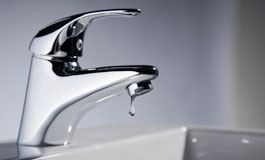
The Dolphin/Tuna Problem
The Dolphin/Tuna Problem
Public awareness has had a huge impact on the progress made in the dolphin/tuna issue. Keep up the good work. There is a lot you can do in your neighborhood to educate about the threats to dolphins and our marine environment.
- Stay involved and informed. Most people do not understand all of the issues. A great resource is the website for NOAA Fisheries at www.nmfs.noaa.gov. Click on “Protecting Marine Species” and then click on “Marine Mammal Conservation”.
- Schools can plan lessons focusing on dolphins and their marine ecosystems. Young people have proven to be enthusiastic about keeping their families and schools aware of the threats to dolphins. Class letters to companies and Congress can have an exciting impact. Young people can make a big difference.
- Set up booths at fairs and other gatherings. Materials are available from many marine-oriented environmental groups.
- Write letters to the editor of your local newspaper. Encourage your local press to publish the facts.
- National Marine Fisheries Service (NMFS) has worked hard to manage the tuna industry. Let them know you appreciate their effort.
Chris Oliver Asst. Admin.
Nat'l Marine Fisheries Service
1335 East West Highway
Silver Spring, MD 20910
www.nmfs.noaa.gov
- The Commerce Department needs to know that the public supports the International Dolphin Conservation Act and efforts to protect the entire marine ecosystem.
Wilbur Ross
Secretary of Commerce
Office of Secretary
Mailstop 61
US Department of Commerce
14th and Constitution Avenue
Washington, DC 20230
Senator John Thune
Senate Commerce Committee
Washington, DC 20510-6125
- Public involvement has had a tremendous impact on the dolphin-tuna issue. Government officials need to know where continued public support lies. And don't forget to provide positive feedback. Commend those organizations and government officials whose work you appreciate.
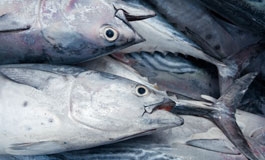
Don't Feed Wild Dolphins
Don't Feed Wild Dolphins
Learn more about why you should NOT FEED WILD DOLPHINS at http://dontfeedwilddolphins.org/
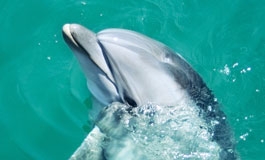
The Fisheries
The Fisheries
Get Informed…
The Monterey Bay Aquarium and the National Audobon Society both publish smart seafood guides. They give information about how well different fisheries are managing their resource, including the status of different fish and the bycatch involved in each industry. Take these guides with you to restaurants and stores as a reference when purchasing fish. Remember the power you have as a consumer.
Monterey Bay Aquarium
886 Cannery Row
Monterey , CA 93940
Phone: (408) 648-4888
Fax: (408) 648-7960
http://www.montereybayaquarium.org/
National Audubon Society
700 Broadway
New York , NY 10003
Phone: (212) 979-3000
Fax: (212) 979-3188
www.audubon.org
Write Letters...
No issue is so large that you can't make a difference if you are willing to get involved. The United States can be a leader in environmental issues world wide. Your government officials need to know where you stand.
- Write to your congressperson and express your feelings.
The Honorable (your senator)
U.S. Senate
Washington , DC 20510
The Honorable (your representative)
U.S. House of Representatives
Washington , DC 20515
- Write to National Marine Fisheries Service, the Department of Commerce, and the House Committee on Environment and Natural Resources about your concerns for the state of the fisheries.
Chris Oliver
Assistant Administrator
NOAA Fisheries
1335 East West Highway
Silver Spring , MD 20910
Wilbur Ross
Secretary of Commerce
Office of Secretary
Mailstop 61
US Department of Commerce
14th and Constitution Avenue
Washington , DC 20230
The Honorable Rob Bishop
House Subcommittee on Environment and Natural Resources
Washington , DC 20515
- Write to the Japanese Ambassador in support of Japan's compliance with the United Nations Resolution to stop driftnetting.
Shinsuke Sugiyama
Ambassador of Japan
2520 Mass. Avenue NW
Washington, DC 20008
- Write in support of the United Nations ban on driftnetting.
Special Representative of the Secy. General for the Law of the Sea
United Nations
470 United Nations Plaza 2
New York , NY 10017
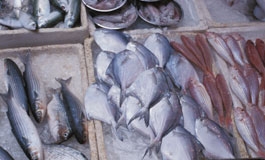
Want To Do More?
Want To Do More?
There are lots of areas where your choices can contribute to the good health of the planet (that includes you and me, your family, your pet, the DRC dolphins, and all other life on Earth)--or to the planet's sickness:
|
|
Learn what choices you have, and make your impact a positive one!
SOME ENVIRONMENTAL SUCCESS STORIES...
- In 1989, Aurora High School students, after participating in Dolphin Research Center's week-long DolphinLab, returned to Colorado and succeeded in convincing their school board to take tuna off the cafeteria menus throughout the school system until such time as they could purchase dolphin-safe tuna exclusively.
- McDonalds and Burger King not only have discontinued the use of polystyrene packaging for their hamburgers, but they are now also using recycled materials for their packaging.
- When the town of Berkeley, California, instituted a ban on polystyrene, carryout places replaced polystyrene foam cups with paper. Many residents, who found themselves burning their fingertips through paper cups, resorted to bringing their own ceramic mugs for their morning cappucino – the right material for the job!
- Long Island Sound fisherman Terry Backer, disgusted with the sewage and chemical pollution of the Sound, helped form the Connecticut Coastal Fishermen's Association in 1985, which successfully sued the city of Norwalk for violating the U.S. Clean Water Act. The money was used to fund research and restoration projects, and to create the full-time position of Long Island Soundkeeper, who patrols the Sound in a 19-foot powerboat, looking for pollution and initiating legal action against violators.
Share your environmental success stories with us!
References…
Berthold-Bond, Annie. 1990. Clean and Green. Ceres Press, Woodstock, NY.
Cohen, Gary, and J. O'Connor. 1990. Fighting Toxins. Island Press, Washington, DC.
Dadd, Debra Lynn. 1986. The Nontoxic Home. Jeremy P. Tarcher, Inc., Los Angeles, CA.
Earthworks Group. 1989. 50 Simple Things You Can Do To Save the Earth. Earthworks Press, Berkeley, CA.
Earthworks Group. 1990. The Recyclers Handbook. Earthworks Press, Berkeley, CA.
Gutin, Jo Ann C. 1994. "Plastics: Can't Live With 'Em--Can We Live Without 'Em?" E Magazine, 5(3):28-35. Earth Action Network, Inc., Norwalk, CT.
O'Hara, K.J., S. Iudicello, & R. Bierce. 1988. A Citizen's Guide to Plastics in the Ocean: More Than A Litter Problem. Center for Marine Conservation, Washington, DC.
Makower, Joel, John Elkington and Julia Hailes. 1993. The Green Consumer. Penguin Books, New York, NY.
National Wildlife Federation. 1995 Conservation Directory, 40th Edition. Rue E. Gordon, ed. National Wildlife Federation, Washington, DC. A list of organizations, agencies, and officials concerned with natural resource use and management; published annually.
Rifkin, Jeremy, ed. 1990. The Green Lifestyle Handbook. Henry Holt & Company, New York, NY.

Our Mission -
Through education, research and rescue, Dolphin Research Center promotes peaceful coexistence,
cooperation and communication between marine mammals, humans and the environment we share with
the well being of DRC's animals taking precedence.
